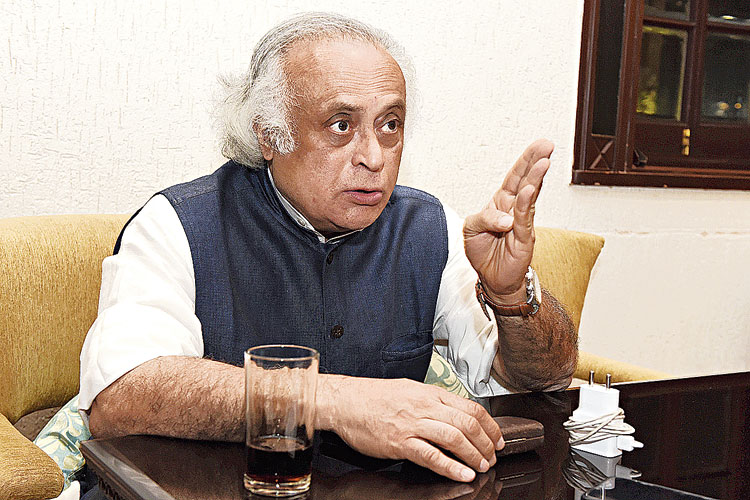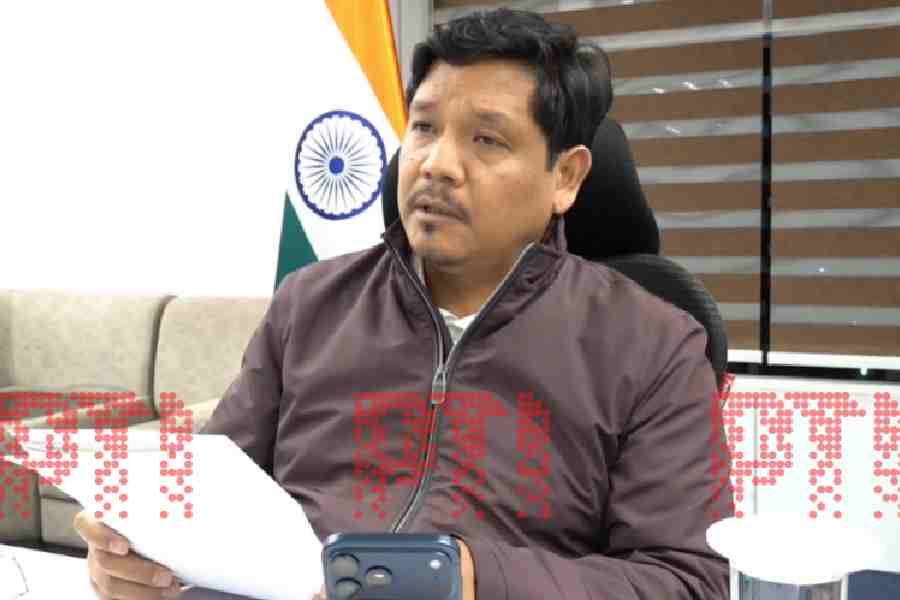Politicians should “not contaminate” the people’s movement against the new citizenship regime, feels Congress leader Jairam Ramesh.
“I would say that we should maintain a respectable arm’s length with these people’s protests. I have not gone to Shaheen Bagh. My view is that we should not contaminate people’s movement with the virus of politics,” the Rajya Sabha member and former Union minister told Metro on Wednesday.
“They (people’s protests) should remain spontaneous, they should remain unorganised. Political parties should fight this in Parliament, in courts, in legislatures, they can fight it through their own rallies. But they should under no circumstances get involved in people’s movement.”
Ramesh was in town to launch his book “A Chequered Brilliance: The Many Lives of V.K. Krishna Menon”. The publisher’s note calls it a “compelling biography of one of India’s most controversial and consequential public figures”.
Ramesh pointed out that the Preamble to the Constitution, which is being read at anti-citizenship regime protest rallies, and the idea of a Constituent Assembly (the body that drafted the Constitution), came from Menon.
“The first draft of the Constitution was prepared by Krishna Menon. He and K.M. Munshi had an important role to play in the conception of the Preamble. In fact, he and Munshi prepared a draft of the Constitution, which was shared with Jawaharlal Nehru in November 1946, one month before the Constituent Assembly was constituted,” Ramesh told this newspaper on the sidelines of the launch.
Asked what should be the role of the Congress in the current environment of protests, Ramesh said: “We (the party) have fought it (the Citizenship Amendment Bill) in Parliament. We lost. We are now fighting it in the Supreme Court. We have passed resolutions in states where we are in power. As a responsible political party... our methods of protests have to be constitutional, peaceful and democratic.”
Ramesh, one of the 60 petitioners against the amended citizenship act in the Supreme Court, said the BJP was in no hurry to diffuse the situation because it suited their divisive agenda. “They think the longer this (the protest) stays, the more will be the polarisation…. They are hoping it would work in Bengal. The next big target is Bengal.”
Ramesh said his party’s “big challenge is to ensure that the BJP’s performance in 2019 was an aberration”.
“The founder of the Jana Sangh is Syama Prasad Mookerjee. The Partition of Bengal took place largely because of Syama Prasad Mookerjee. There was Sarat Chandra Bose on one side, who was arguing against Partition. On the other side, there was Mookerjee, who was arguing for Partition. During the Nehru-Liaquat pact, even Sardar Patel was so agitated by the language and rhetoric that was being used by Mookerjee. The first amendment on freedom of speech was largely because of Mookerjee’s speeches on Hindu-Muslim relations in Bengal, which even Patel took very violent objection to. These are all part of the record.”
“While there is a communal history to Bengal, in the post-Independent history, mercifully, first under Bidhan (Chandra Roy) babu and subsequently under the Left Front, communal politics did not overtake Bengal. But if the 2019 momentum continues, then I am afraid Bengal is going to be caught in a communal whirlpool. It would be disastrous, not only for Bengal but the rest of the country,” he said.










